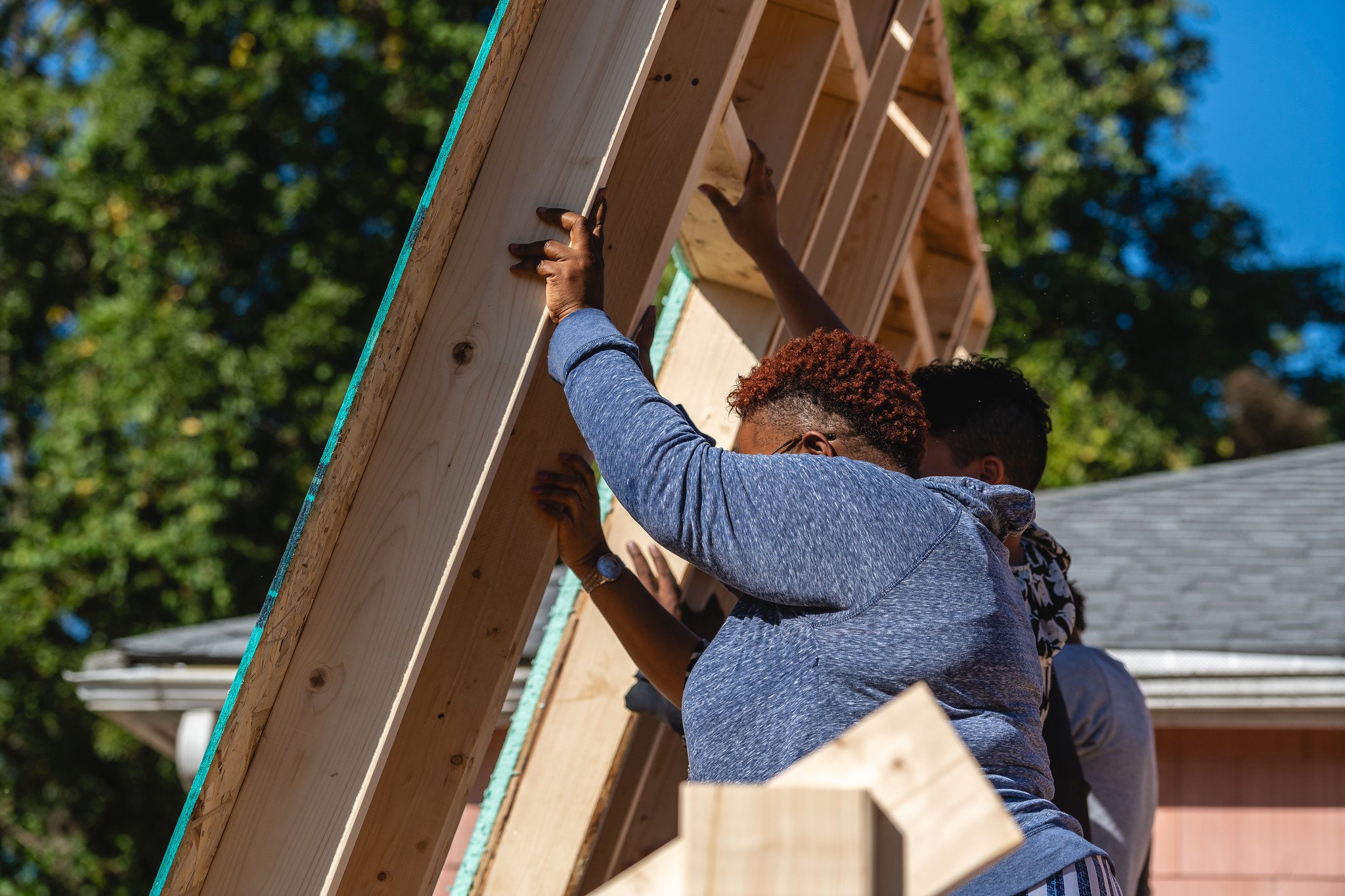Inclusive Economies
Inclusive Economies
Inclusive Economies
Inclusive Economies is all about opportunity. The recommendations within this bucket focuses on creating spaces for County residents and workers to earn a good living, the way they want.
These policies ensure everyone has fair access to the jobs, resources, and economic growth necessary to move St. Louis County forward.

All Inclusive Economies Recommendations
Each card below is one recommendation. The icons on each card represents what policy buckets, key issues, and topic areas are addressed by the recommendation. The more icons there are, the more transformative a recommendation is. While every recommendation brings St. Louis County closer to our vision, cards with a purple background are identified as the most transformative recommendations.
Legend
Inclusive Economies
Complete Communities
Sustainable Infrastructure
Responsible Growth
Leading the Region
Population Stagnation
Jobs-Skills Mismatch
Housing Diversity & Affordability
Infrastructure Cost-burden
Social & Environmental Resilience
Economic Development
Housing
Land Use & Development
Open Space & Environment
Transportation & Infrastructure
Recommendation IE.1
Fund homebuyer assistance programs, with emphasis on low- to moderate-income households.
Recommendation IE.2
Utilize Missouri State Statue Chapter 353 Tax Abatement to help redevelop blighted areas by providing tax abatement incentives for up to 25 years.
Recommendation IE.3
Reduce fees for affordable and workforce housing development. Provide fast-track review and approval if project matches zoning and the pre-approved housing designs.
Recommendation IE.4
Promote Countywide corridor land-use patterns that provide complementary commercial and public services to meet adjacent neighborhood needs and identity.
Recommendation IE.5
Re-zone underutilized commercial corridors and nodes to promote mixed-use development, diverse and attainable housing types, and/or high-quality public gathering places with enhanced landscaping and public amenities.
Recommendation IE.6
Identify and prioritize infill redevelopment in underutilized areas within lower-income neighborhoods.
Recommendation IE.7
Create area-specific educational and funding programs to enhance developer and contractor diversification, and provide for small and start-up business support.
Recommendation IE.8
Develop implementation partnerships between businesses, community organizations and municipalities for the continued development of local and neighborhood commercial corridors.
Recommendation IE.9
Increase missing middle housing through the modification of land use regulation throughout the County and all municipalities.
Recommendation IE.10
Promote adaptive reuse of historically significant buildings for conversion into other uses, such as multifamily residential developments, live and work units, mixed use developments, or commercial uses.
Recommendation IE.11
Promote an appropriate job–housing balance in key areas of the County to establish livable employment opportunities that are accessible to the County population, resulting in shorter commutes and a higher quality of life.
Recommendation IE.12
Develop, operationalize, and market a pre-approved housing design catalogue that is compliant with the County’s Zoning Ordinance to increase the speed of housing delivery through administratively approved housing types. The typology may include, but is not limited to multi-family condominiums, duplexes, triplexes, and fourplexes, accessory dwelling units (ADUs), and modular, manufactured, and prefabricated homes.
Recommendation IE.13
Use Community Benefit Agreements or other incentives to encourage housing developments that include/fund social services facilities.
Recommendation IE.14
Leverage and enhance the economic performance of main streets and downtowns as destinations for hospitality and regional and national tourism, and the provision of a diversity of employment options.
Recommendation IE.15
Capitalize on the community’s demographic’s transformation to create a diverse array of affordable and age-sensitivity housing choices within downtowns and along Main streets.
Recommendation IE.16
Provide improved multi-modal transportation opportunities for workers to reach regional commercial and business employment centers.
Recommendation IE.17
Capitalize on the on-shoring manufacturing and the increased demand for goods and services by proactively planning for new industrial and manufacturing areas that contain well-serviced development sites of scale that are accessible to the interstate system and nearby workforce housing.
Recommendation IE.18
Continue to build on key of existing and emerging logistical centers to support e-commerce growth and the increased demand for goods and services as well as serving the last-mile service area.
Recommendation IE.19
Facilitate the re-tooling or transformation of the existing outdated industrial parks and buildings with the necessary infrastructure to remain competitive.
Recommendation IE.20
Establish a housing cooperative program that offers incentives such as grants, tax breaks, zoning adjustment, and expedited permitting to encourage the development of sustainable, affordable housing cooperatives.
Recommendation IE.21
Establish a business cooperative program that provides strategic assistance, training, and evaluation to help people create worker-owned enterprises that create wealth for employees and their communities.
Recommendation IE.22
Support and advocate for the expansion of SNAP (Supplemental Nutrition Assistance Program) and WIC (Women, Infant and Children) programs for seniors, youth and families.
Recommendation IE.23
Coordinate with the St. Louis County Schools and Youth and Community Service organizations to ensure summer food programs and dinner food programs including a regional volunteer recruitment effort to staff summer and dinner programs.
Recommendation IE.24
Support and expand food pantry service areas to include distressed neighborhoods.
Recommendation IE.25
Eliminate food deserts by working with property owners to implement community gardens, food forests, and farmers’ markets on vacant parcels in neighborhoods with deficient access to healthy food opportunities.
Recommendation IE.26
Provide information and resources to communities planning for and launching food co-ops, CSA’s, food forests, neighborhood-based food sharing networks, and other public and private food-scaping opportunities.
Recommendation IE.27
Encourage grocery or other retail food-based stores receiving tax incentives and public subsidies to hire workers from the adjacent underserved communities, provide community classes or educational information about a healthful diet, and source food from local urban farms and gardens.





